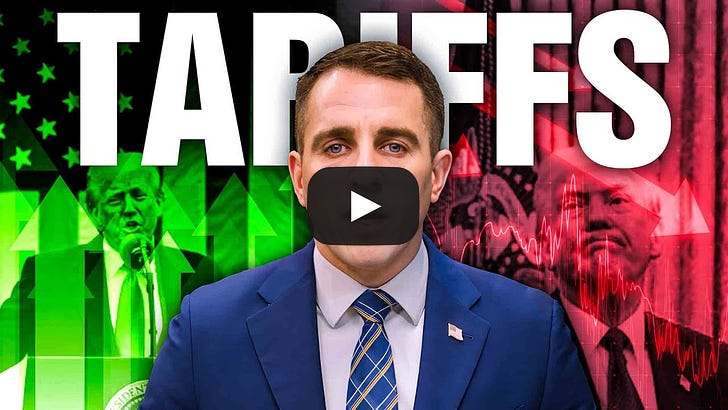Tariffs Are Controversial Depending On Who You Ask
To investors, The President and his administration have to pull off the impossible in the coming weeks. They need to hold the line on tariffs so foreign leaders take the US demands seriously, while simultaneously communicating clarity around de-escalation to financial investors. If you hold the line without communicating clarity, investment assets will be in free fall. If you communicate clarity without holding the line, you don’t get any trade deals done. Thankfully, reports surfaced yesterday that Treasury Secretary Bessent visited President Trump on Sunday afternoon with a single suggestion — focus the message on getting trade deals done. The market can stomach short-term uncertainty if they know that long-term predictability is coming. If investors think predictability will return, financial markets will relax and everyone will realize the recent fears were an overreaction. But don’t hold your breath. Uncertainty is the name of the game right now. A few people online have pontificated that a key aspect of negotiating these trade deals is you have to convince the other side that you are crazier than them. If it works out, you look like a genius. If it doesn’t work out, you just look ridiculous. That is the classic trade-off of high-stakes negotiating. While those negotiations are happening, we are starting to hear opinions on the tariffs from various executives and business leaders. Some are bullish, while others think the tariffs are stupid. Take the Marlin Steel CEO. He went on CNN and explained the unfair trade practices of foreign governments. Take a listen:
That is a pretty powerful interview from someone on the frontlines of the industrial and manufacturing industry. There are obviously plenty of critiques of these policies too. Take Home Depot co-founder Ken Langone as the counter-example.
And Wilbur Ross, Trump’s commerce secretary during the first term, has the following to say:
I agree that uncertainty and fear of the unknown can paralyze investors. That is why I think the tight-rope walk constitutes clarity for financial markets, while holding the line for trade negotiations. This brings me to something I have noticed — the closer someone is to the finance industry, the more they are against the tariffs. The closer someone is to the industrial or manufacturing industry, the more they are supportive of the tariffs. Fascinating to watch. Lastly, one aspect of these tariff deals that seems to be undiscussed is the likelihood that foreign countries will commit to making direct investments in the US. These countries will also look to buy products made in America too. As I wrote yesterday, Taiwan committed to buying industrial products, agricultural products, energy, and weaponry from us. I would expect many of the deals to include these concessions and commitments. There is plenty of volatility left in these markets. Stocks are down. Bitcoin is down. Crypto is down. And no one knows where the bottom is. The undisciplined, over-levered, and short-term oriented panic, while the patient, un-levered, and long-term oriented feel nothing. Make sure you are on the right side of that equation. Hope you all have a great day. I’ll talk to everyone tomorrow. – Anthony Pompliano Founder & CEO, Professional Capital Management NOTE: My wife, Polina, recently interviewed Jonathan Bush, a former Wall Street CEO who went toe-to-toe with activist investors. He says “failure is good for you, but it is not fun.” The interview is great and you will learn something if you read it. Check it out here. Read The Profile with Jonathan Bush Anthony Pompliano Explains TariffsAnthony Pompliano records a solo episode explaining everything that is currently going on with tariffs, how we got here, President Trump’s tariff plan, examples in history, and where we could be headed from here. Enjoy! Podcast Sponsors
You are receiving The Pomp Letter because you either signed up or you attended one of the events that I spoke at. Feel free to unsubscribe if you aren’t finding this valuable. Nothing in this email is intended to serve as financial advice. Do your own research.
Invite your friends and earn rewardsIf you enjoy The Pomp Letter, share it with your friends and earn rewards when they subscribe.
© 2025 |

